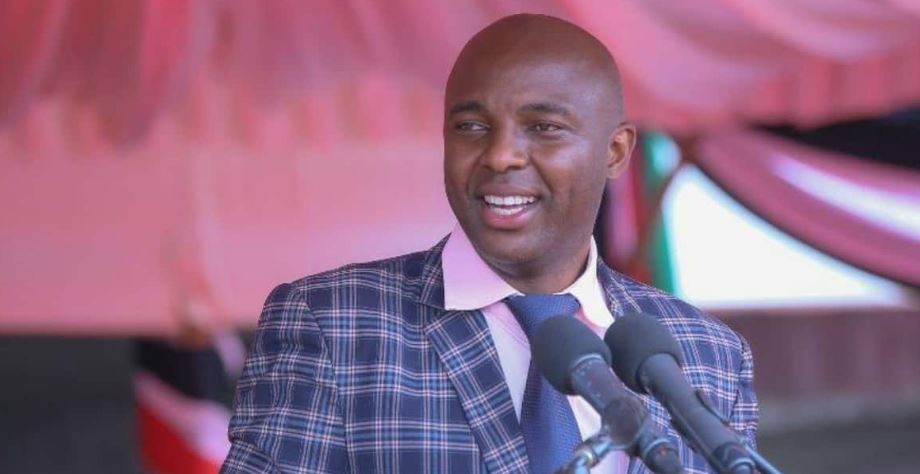
Have you watched the movie The Terminator, starring Arnold Schwarzenegger? Well, the villain is a human-like creature made of metallic liquid. It resembles a human being but the body does not comprise normal bones and flesh. When it is bombed, it temporarily turns into molten metal that after some time solidifies back into a human form and continues to chase terrified humans around.
Or have you ever watched those horror vampire movies? Humans shoot them but they survive and continue chasing humans around.
Political dynasties are like those movie ghosts — you shoot them “politically” and you mistakenly think they are dead. In real sense, they only hibernate and return to continue chasing you around.
Take the English monarchy as an example. Between 1642 and 1652, a civil war erupted pitting royalists and parliamentarians who wanted to assert parliamentary power in the running of the government.
Royalists were defeated and King Charles 1 was executed on January 30, 1649. However, political circumstances created conditions that ultimately led to the restoration of the monarchy in 1660.
Another example of staying and resurrecting the power of political dynasties is in Russia. The Last Czars, a documentary on Netflix, explains this historical event. It features the reign of Nicholas II, the last emperor of Russia’s Romanov dynasty. Nicholas II had taken office at the age of 26 after the death of his father in 1894. He continued the autocratic rule of his father.
This made his rule very unpopular, ultimately creating conditions for the Bolshevic communist revolution of 1917. Together with his family — comprising his wife and four young daughters — he was arrested. The revolutionaries executed the family in cold blood. The communists ruled Russia for about 70 years until its collapse in the late 1980s. As proof of the hold of a political dynasty in society, in 1998 then-Russian President Boris Yeltsin ordered the exhumation and respectable reburial of the remains of the family.
One would have thought the dynasty chapter had been closed. But that dignified reburial, 80 years later, proved the staying power of political dynasties in any nation’s consciousness. So, how does a new anti-dynasty government completely neuter a defeated dynasty to forestall its political resurrection? There are three ways.
First, the new government must deliver economically and socially. That makes the people forget completely about the dynasty and celebrate the new dawn.
At the end of the day, politics is all about economic development. All sorts of leaders have gained or lost political credentials based on economic delivery. Think of the cantankerous Muammar Gaddafi of Libya. He stayed in power for 40 years after delivering economic goods to his people.
The Lee dynasty of father and son in Singapore remains in power since the 1950s on the back of the economic transformation of that city-state. Arab rulers have deftly stayed in power on the basis of the economic transformation of their countries. The Communist Party in China no longer practises communism — it draws its legitimacy on economic delivery.
Of course, politics is important since it is the art of making economic programmes accepted by the people. Even Jesus said “Man does not live on bread alone”.
However, economic problems always precipitate backwards-looking by people through comparisons.
The second way of completely annihilating a political dynasty is through subtle “banishment”. In other words, you “exile” the dynasty in a roundabout manner.
The other possible way of tackling dynasties is to make them irrelevant by ignoring them.
In the UK, dynasties make no politically relevant decisions. They remain purely for sentimental reasons.
The above helps in answering the question for UDA, particularly the Mt Kenya wing: How do we ensure the Kenyattas do not resurrect politically?
Three ways to end dynasties for good made a smart move during his inauguration. He had banished former president Uhuru Kenyatta by nominating him for some international assignment. The problem was that the assignment was temporary hence Uhuru has resurfaced.
Ruto now needs to institutionalise that banishing to ensure Uhuru stays out of Kenyan politics. The East African Community (EAC) offers a good opportunity for that.
Currently, the EAC is doing a constitutional review of its founding law. Ruto should seize this opportunity to deftly handle Uhuru.
Regional economic blocs do better when being steered by former top-notch politicians. Ursula Von Der Leyen, currently the European Union president, is a German politician. Before that was Jean-Claude Juncker, a former Luxembourg Prime minister.
Ruto should use this to justify creating a seat to “banish” Uhuru. In any event, such a post creates a perfect landing spot for other regional presidents who have overstayed in national power in East Africa. Ruto should then ensure one condition for such a regional slot is to cause its occupant to repudiate local politics.
UDA could also ignore Uhuru. Silence is a great political weapon. In Mathew 27: 12, accusations were made against Jesus by the Pharisees. Jesus opted for silence. Proverbs 17: 28 says, “Whoever restrains his words has knowledge. And he who has a cool spirit is a man of understanding. Even a fool who keeps silent is considered wise; when he closes his lips, he is deemed intelligent”.
A confession: I have a personal interest in having Ruto win this struggle. In the UK, after dynasty restoration, those who had signed King Charles 1 warrants were arrested and hanged. As a UDA luminary who wrote an infamous letter, a dynasty restoration would mean my political “hanging”.
The above lessons are important because as UDA adherents in Mt Kenya, we do not want the political actualisation of a famous statement in The Terminator by Arnold Schwarzenegger: “I’ll be back”.
This opinion piece was published in the Sunday Nation








